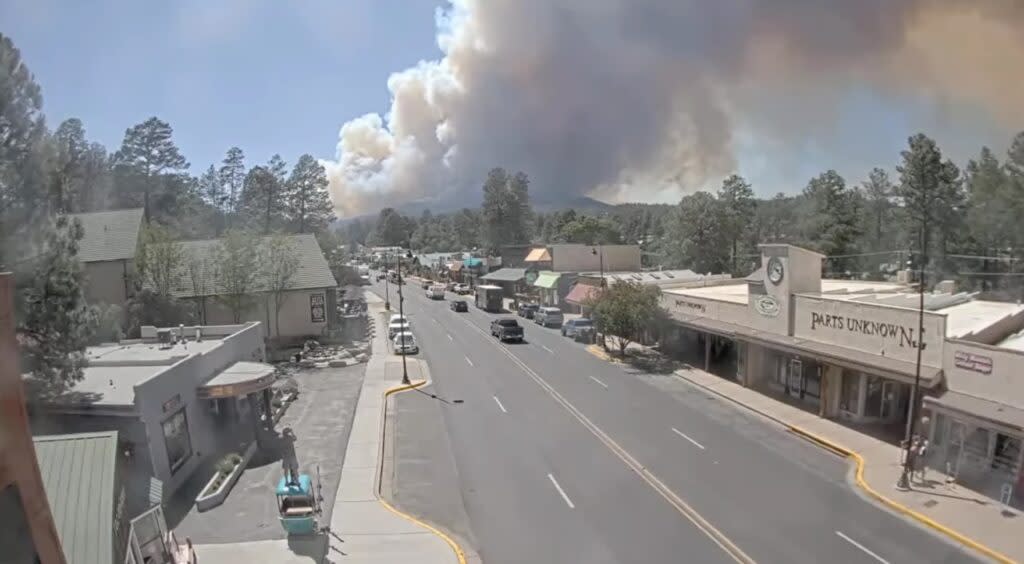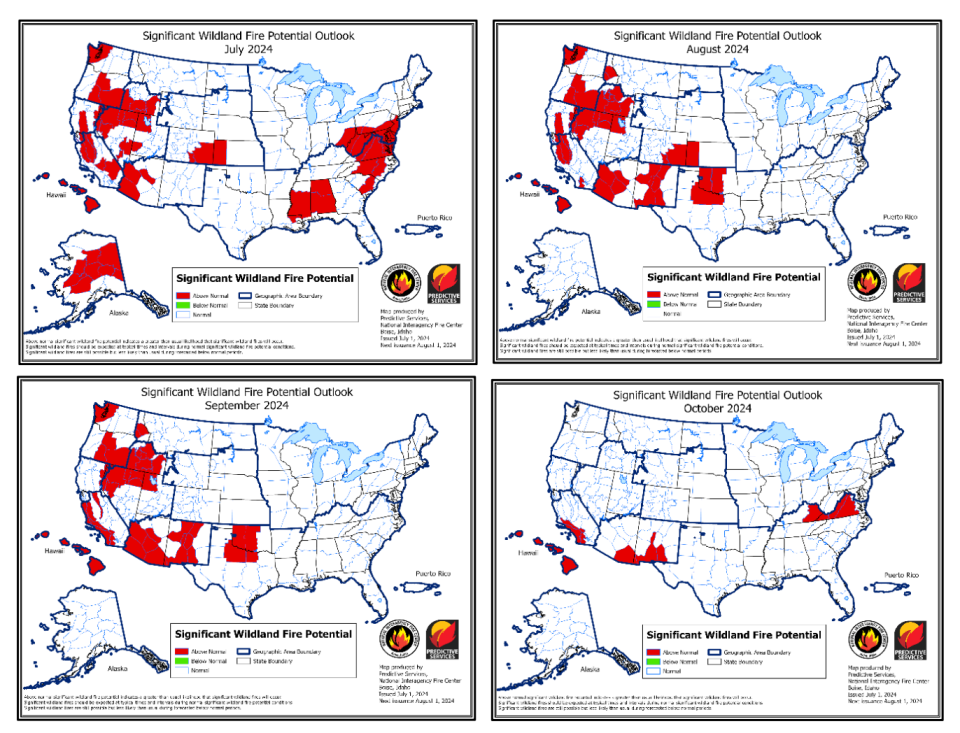Wildfire risk in NM expected to increase later this month after rain-soaked respite

Village of Ruidoso from a live camera set up by Ruidoso EarthCam on June 17, the day the South Fork and Salt fires ignited. (Photo courtesy of the Village of Ruidoso)
The early monsoon rains that helped firefighters turn the corner on the South Fork and Salt fires in southern New Mexico were part of a pattern across the state that reduced wildfire risk for at least the next several weeks, according to a forecast released this week.
The risk of wildfire will return with a vengeance, forecasters warn, likely re-emerging by later this month and potentially sticking around into the fall, according to the monthly outlook published by the National Interagency Fire Center.
Fire risk will be higher than normal, according to the center, beginning in late July through August along the Continental Divide and east of there. Forecasters expect hot and dry conditions throughout the month, and little change in September, according to the outlook.
The high risk could continue much longer than usual, “even into October,” the outlook states.
In May, the NIFC outlook for July said most of the state, including central New Mexico along the mountain ranges and southern New Mexico, would experience hot and dry conditions that increase fire risk above normal.
Across the state this year, 437 wildfires have been reported that have burned a combined 62,654 acres, according to Southwest Coordination Center statistics. Of them, 97 were caused by lightning and 269 by humans. The other 71 are unknown, according to the center.
The South Fork and Salt Fires both began June 17 and quickly turned dangerous, damaging or destroying about 1,400 structures and resulting in the deaths of two people, according to state officials.
Beginning June 19, a rainstorm moved over the area, helping increase moisture and reduce the fire’s growth but also causing flash floods and debris flows in and around the burn scar.
As of Tuesday, both fires are about 85% contained. Thanks to scattered moisture, the few hot spots remaining within the perimeters of the fires aren’t expected to pose much more danger “and will remain quiet until a drying trend occurs,” state forestry spokesperson George Ducker said in a statement Tuesday.
The causes of both fires are still “undetermined,” according to the incident command team in charge of the fire, but the Federal Bureau of Investigation is assisting investigators who are working to determine what sparked the deadly blazes.
The post Wildfire risk in NM expected to increase later this month after rain-soaked respite appeared first on Source New Mexico.


